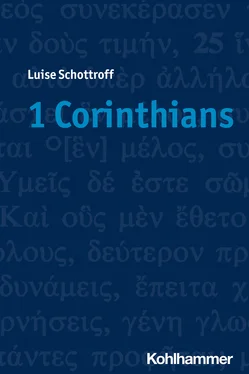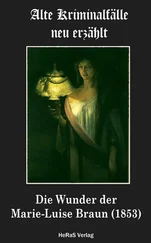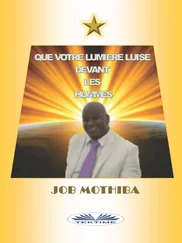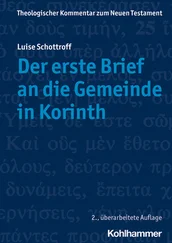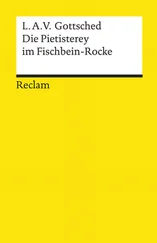Cicero and Lucian show how far apart the work of a manual laborer and education are and that the educated could afford their education and derived self-assurance from their distain of those who worked with their hands. 124
Against this background it becomes understandable what liberation God’s call meant for the uneducated and despised. They were now part of a community in which their dignity as saints was central and in which abilities and acumen accrued to them.
1:29 The feeling of superiority that the educatedand wealthy have at the expense of the uneducated and poor is worthless in the sight of God. Because of their wisdom, their power and their riches (see Jer 9:22 [Eng. Bible, 9:23]), they have boasted/bragged. It’s all about the elite’s feeling of superiority and the freedom to do as they please that goes along with it. It’s true that the city is still under their control, but as far as the messianic congregation is concerned, they have lost their power. The »wisdom of the world« evokes structures of bragging/ kauchasthai (for the basic information on the »wisdom of the world,« see above at 1:17).
It would be inappropriate to make a moral judgment about this bragging and strutting. It is the elite’s job to preserve society’s hierarchical structure. For this reason, a formative process for the responsibility that comes with being superior is begun already on the bodies of the elite’s newborn children. 125
The ontologizing of »boasting« 126that frequently occurs in the history of interpretation bypasses the social realities, as well as their destructive power for the congregation in Corinth, which Paul points out in 1:10–17. This ontologizing of »boasting« is also frequently used for Christian anti-Semitism: the hubris »of the [pious] Jew« represents the hubris of »humanity« before God. 127
1:30In 1:30 Paul displays the full abundance in which believers in the Messiah live as a community. This abundance they have received from God, who formed them into the body of Christ. The expression en Christō Iēsou , which Paul uses frequently, looks simultaneously at God’s action of raising the one whom Rome crucified and at the result of God’s action: the presence of the Messiah in the form of a community of people at a specific place, Corinth, as well as at many others. The expression is almost identical with the Pauline language about the body of Christ ( sōma Christou ). The uneducated and humiliated people who are the body of Christ in Corinth now have wisdom from God(cf. 1:24; see at 1:5 and the basic information after 1:25): they recognize God’s action in Corinth, they live in accord with the Torah (see at 7:19) and they constitute a highly competent community of Torah interpreters, even though they are more or less illiterate.
Righteousness—that God imparts to »us« as a gift, although even the dock workers and street peddlers in Corinth see how deeply enmeshed they are in unjust structures. They suffer injustice through the misuse of power, thus becoming its victims. However, they are themselves also the ones who act. The gift of righteousness guides the believers in the Messiah in the fulfillment of the Torah. To differentiate between »our« righteousness and God’s righteousness prevents us from recognizing the connection between the two. God’s righteousness is God’s liberating action, which makes the believers in the Messiah capable of keeping the Torah.
Sanctification—through their fellowship with Christ people become saints (see above on 1:2).
Redemption—cf. Rom 3:24. The word used here, apolytrōsis , refers in the social sphere to the buying of the freedom of prisoners through the payment of a ransom, 128but at the same time the word brings to mind the liberation from Egypt of the enslaved people of Israel. 129This is shown by the fact that the metaphor is not focused on what the cost of the liberation was. God’s action has freed the believers in the Messiah from slavery. In the context of 1 Cor 1:30 the liberation from the structures of this world is in view, which are in Romans called »sin.« Life under the conditions of the Roman Empire is designated as slavery, even for the freeborn. 130It is clear that slaves belong to the Corinthian congregation, even if it is difficult to demonstrate that in individual cases. The names of individuals and groups (Chloe’s people, 1:11; the household of Stephanus, 1:16) can be indications of slavery. 131
So, if belonging to the Messiah in 1:30 brings apolytrōsis , what is meant is liberation from slavery in the sense of structural sin and of life in a system characterized by violence. Liberation from the legal status of slavery is not in view, but rather life as a »freed person belonging to Christ« (7:22). They are equal to the freeborn in the congregation. The congregation’s members work together in the congregation and beyond for a mode of living that puts an end to the wisdom of the world and its hostility to life.
1:31Paul introduces as a quote from Scripture a sentence based on Jer 9:23 (LXX) [Eng. Bible, 9:24] or 1 Sam 2:10 (LXX). Paul has a concept of Scripture citation that is different from that of modern historical criticism (see basic information at 7:19). The introduction to the citation is also shorthand, saying only hina kathōs , and indicates his hermeneutic of Scriptural interpretation: God speaks in Scripture »for our sake,« (Rom 4:23–24; 1 Cor 9:10). God’s word in Scripture is meant to be experienced by »us« (see the basic information before 2:6). To boast of the kyrios /praise the kyrios —has led to different interpretations. Is it referring to God or Christ? Paul wanted the sentence to be understood as a Scripture quotation. Therefore, he should have been referring to God and using kyrios as a substitute for the Tetragrammaton. 132To praise God is the true and inexhaustible source of strength—but not one’s own possession or attainment to play off against others.
2:1–16is made up of two sections with interrelated content. The first section, 2:1–5, sets Paul’s life before the congregation, especially his appearance before the congregation as God’s messenger, and how this relates to their own cross-centered discipleship (1:26–31). The message of God ( katangellein , 2:1; kerygma , 2:4) that he conveys is a word of revelation (2:1) and a word in which divine power is at work (2:5). In 2:6–16 the fundamental meaning of the word of revelation is explained. Now the congregation itself becomes the subject of the word of revelation. The »we« in 2:6 already merges Paul as God’s messenger with the congregation. This section speaks of the endless riches of experiencing the power of God’s Spirit and God’s wisdom in a congregation that separates itself from »human wisdom« (2:5), the »wisdom of this age« (2:6) and the »spirit of this world« (2:12, 13). This separation has huge consequences for the way they live (see above on 1:2). The wisdom and the power of God’s Spirit that come from God enable the congregation to see Jesus’ crucifixion for what it is, a violent act of the mighty that follows the logic of the »wisdom of this age« (2:6–8). And: it enables the congregation to celebrate their own riches, which the power of God’s Spirit brings: We have God’s Spirit (2:16).
1 As I came to you, sisters and brothers, I did not appear as a brilliant speaker and teacher of wisdom, in order to proclaim to you God’s mystery. 2 For I became convinced that in your case nothing was so important as Jesus the Messiah, and he, indeed, as a crucified one. 3 I came to you in weakness and fear and with great anxiety. 4 My speech and my message did not consist in winning words of wisdom but came out of the experience of the Spirit and of God-given power. 5 Thus your faith does not rest on human wisdom but on the power of God.
Читать дальше
